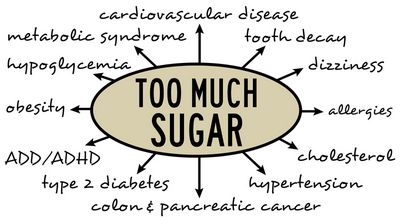Many men have a misconception that when they ejaculate, their sperm is “gone.” Although no scientific evidence says that ejaculating does not cause serious medical conditions, it can decrease a person’s risk of developing prostate cancer.

Having pleasurable sexual intercourse with a great partner can also boost a healthy man’s overall health. This article explores the effects of sexual arousal on the human body and how frequently a man must ejaculate, whether there are any connections between ejaculation and sexual cancer, and whether ejaculation has any effect on cancer of the cervix.
While ejaculate is technically referred to as seminal fluid, it is most closely associated with male sex organs. The prostate, urethra, vagina, and bladder are all composed of blood vessels, nerves, muscles, ligaments, and tissue. When this tissue is stimulated during sexual intercourse, the tissues respond by sending signals to the brain.
The ejaculatory response may last from seconds to several minutes. It is important that males have regular periods, as these periods can be disrupted by masturbation or stress.
The primary objective of intercourse is to increase sex drive. The act of engaging in intercourse can increase the blood flow to a woman’s sexual organs, which in turn enhances her sexual sensations. Sex that involves ejaculating can decrease sexual drive and stimulate only a woman’s orgasm. Studies show that ejaculating can be a significant factor for women in determining whether she experiences intense orgasm or not. The length of an orgasm can also be increased by ejaculating more quickly and often.
Most studies have shown that there is no correlation between the occurrence of premature ejaculations and sexual performance. However, there are cases where males have trouble ejaculating due to psychological or physical factors, such as mental stress, depression, or anxiety. A person’s psychological well-being should always be considered before making sexual activity a part of his or her sexual relationship.
Although there are no direct studies linking ejaculating and prostate cancer, studies show that the risk of having prostate cancer increases if the male ejaculates frequently. Ejaculation can increase the amount of sperm that reaches the cervix, making it more likely that sperm will become lodged there. This increases the chances of sperm becoming lodged within the reproductive organs, which increases the risk of contracting cancer.
There are no studies that state that there is any correlation between the ejaculate and prostate cancer, but in some studies, prostate cancer has been linked to frequent ejaculation. Some studies suggest that ejaculating frequently can help reduce the occurrence of other types of cancer, including testicular and rectal cancer. Some research has found that ejaculating more than 10 times per hour can help a man to avoid prostate cancer in younger men.
There are many different ways to treat prostate cancer and ejaculating less than every time may actually increase the risk for prostate cancer. Doctors usually recommend not having sex for a period of six weeks before consulting a doctor. Some doctors even recommend not having sex at all.
Some experts believe that the cause of this may be related to the fact that the prostate gland produces a hormone called PSA. The hormone can sometimes be detected in urine samples, but the level of PSA may not be abnormal enough to cause concern. However, if the levels of PSA in the blood and urine are elevated, then a doctor may wish to perform a prostate exam to determine if the levels of the hormone are increasing.
Doctors of the American Urological Association suggest that doctors may want to perform an ultrasound or a digital rectal examination before performing an ultrasound to determine if there is a possible link between the ejaculate and prostate cancer. Another way that doctors may test is to perform an MRI of the reproductive organs.
Because ejaculating may decrease the sensitivity of the bladder and urethra, it may interfere with the process of urine production. As a result, a doctor may recommend an MRI of the urinary tract to assess the bladder or urinary tracts to see if there are abnormalities that may indicate that a condition may be present.
When a physician suspects that there is a connection between ejaculating and prostate cancer, then it may be recommended to undergo a test called PSA (Prostatocentric Pleasure In Vivo) to confirm the diagnosis. Some tests that are performed to determine the presence of prostate cancer are CT scans, MRI, pelvic examinations, and urinalysis.